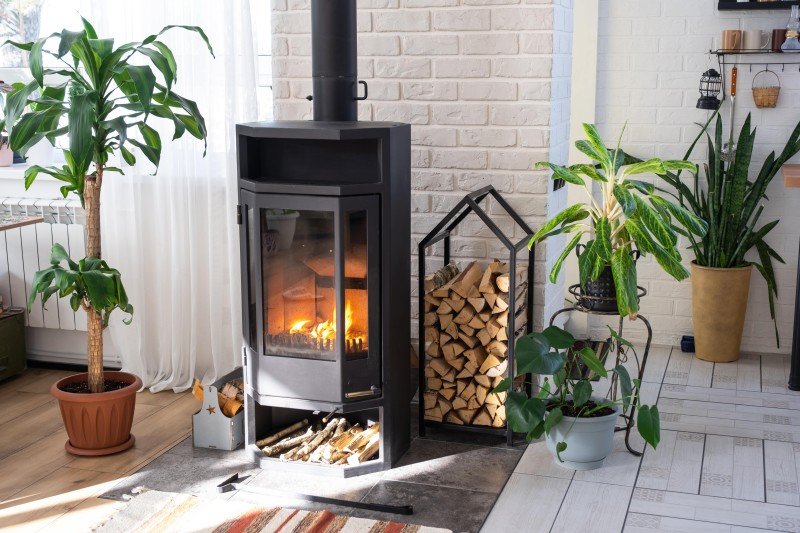A Comprehensive Guide to Small Fireplaces: Efficient Heating and Cozy Living
In a period where energy performance and space optimization are ending up being progressively crucial, small fireplaces have actually become an enticing alternative to traditional, bulky hearths. These compact heating options provide warmth and a focal point for any room, heightening both convenience and aesthetic appeal. This article checks out the different types of small fireplaces, their advantages, setup considerations, and maintenance tips, ultimately helping house owners make informed choices when thinking about these lovely heating alternatives.
Comprehending Small Fireplaces
Small fireplaces offer a variety of styles, including electric, gas, ethanol, and wood-burning designs. Each type provides special benefits and style possibilities, making them appropriate for different living areas.
Kinds Of Small Fireplaces
| Fireplace Type | Description | Pros | Cons |
|---|---|---|---|
| Electric | Utilizes electrical power to generate heat. Provides many designs, consisting of wall-mounted and freestanding systems. | - Easy to set up - Low upkeep - No venting needed | - Limited heat output - May incur greater electrical power costs |
| Gas | Burns gas or propane. Typically offered as logs in a traditional fireplace or modern designs. | - Efficient heat output - Cleaner than wood - Easy ignition | - Requires gas line setup - Some units require venting |
| Ethanol | Burns bioethanol, providing real flames without a chimney. | - Eco-friendly - Portable - No installation required | - Limited heat output - Higher fuel costs |
| Wood-Burning | Traditional fireplaces that burn firewood. Often used in more rustic settings. | - Great heat output - Rich ambiance - Can be used throughout power failures | - Requires a chimney - Regular upkeep and cleaning |
Benefits of Small Fireplaces
- Area Efficiency: Small fireplaces are ideal for apartment or condos, condominiums, and smaller homes. They take full advantage of heat without taking up extreme flooring space.
- Economical Heating: In particular cases, small fireplaces can supplement main heating systems, reducing overall energy expenses while producing a more comfy environment.
- Atmosphere and Aesthetics: They provide a welcoming centerpiece to a space, producing a cozy atmosphere ideal for relaxation and social events.
- Versatility: Available in numerous designs and styles, small fireplaces can match any decor, from modern minimalist to rustic traditional.
Setup Considerations
When considering a small fireplace, setup is an essential element that can affect the option of model. Below are valuable considerations:
- Local Regulations: Building codes can differ by place; always inspect regional standards before setup.
- Ventilation Needs: Depending on the type, small fireplaces might need different ventilation systems. Gas fireplaces might require venting outdoors, while electric models don't.
- Source of power: Electric models need proximity to electrical outlets, while gas and ethanol models may need a gas line or fuel storage.
- Weight and Structure: Installing wall-mounted systems might need reinforced wall areas, whereas free-standing designs are simpler to move.
Upkeep Tips
Like any other home device, small fireplaces require routine maintenance to function successfully and safely. Here are vital maintenance suggestions for various fireplace types:
For Electric Fireplaces:
- Cleaning: Wipe down the unit with a soft cloth to get rid of dust and keep the heating system ducts clear.
- Examination: Check the power cord regularly for any damages or indications of wear.
For Gas Fireplaces:
- Annual Inspections: Schedule annual examinations by an expert to guarantee safe gas flow.
- Clean the Logs: Regularly tidy the burner and logs to preserve optimum performance.
For Ethanol Fireplaces:
- Fuel Storage: Store ethanol fuel securely away from direct sunshine and heat sources.
- Routine Cleaning: Clean the burner after each use to keep efficiency and prevent soot accumulation.
For Wood-Burning Fireplaces:
- Chimney Sweeping: Have the chimney professionally cleaned once a year to avoid creosote accumulation.
- Fire wood Storage: Only use dry, seasoned wood to reduce smoke and promote efficient burning.
Often Asked Questions
1. Can I install a small fireplace myself?
While some electric and ethanol fireplaces are reasonably simple to install, it is advisable to hire an expert for gas and wood-burning systems to guarantee compliance with regional building codes.
2. Just how much does it cost to run a small fireplace?
The cost will differ depending on the type of fireplace. Typically, electric fireplaces might sustain greater electrical energy expenses, while wood-burning choices can draw from renewable fire wood supplies.
3. Do Cheap Fireplaces need a license for setup?
Permits are generally required for gas and wood-burning fireplaces due to their setup intricacy and safety guidelines. Always talk to regional authorities.
4. How long can I run an electric fireplace?
Most electric fireplaces can run for long periods; however, it's recommended to follow maker standards to avoid overheating or harming the unit.
5. What type of small fireplace is best for a small space?
This largely depends upon specific requirements. Electric models are versatile and simple to install, while gas and ethanol alternatives supply real flames with effective heat output.
Small fireplaces represent a practical and stylish option for those looking for efficient heating services in compact home. With different types offered, homeowners can choose designs that align with their aesthetic preferences and space requirements. By comprehending the setup procedures and routine upkeep needed, people can take pleasure in the comfort and atmosphere that small fireplaces provide for several years to come. Whether for a cozy evening at home or an inviting area for events, small fireplaces are a long-lasting component of modern and traditional design alike.

